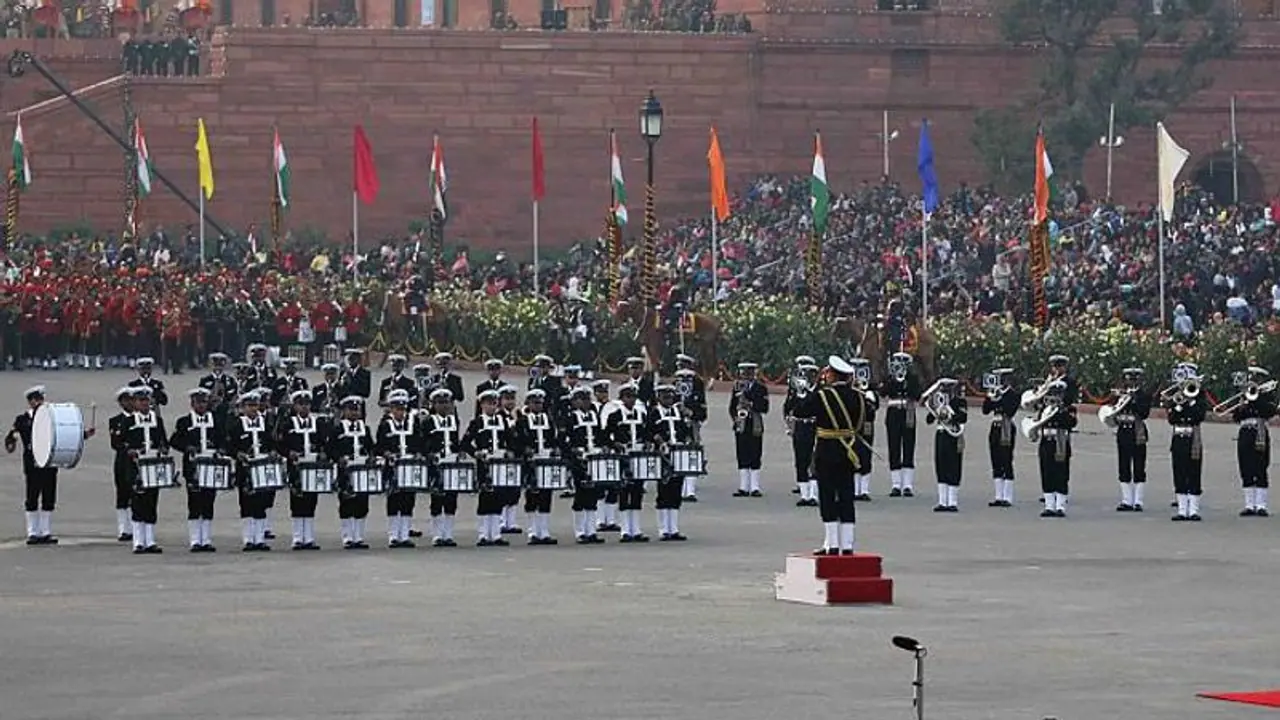Sources said that the decision to remove 'Abide with Me' is part of an ongoing exercise to include tunes that have a wider and deeper connect with the people of India and to phase out tunes handed down from a colonial past.
The military tune 'Abide with Me', which was removed from this year's Beating the Retreat ceremony may be a popular military tune, but the lyrics apparently are understood by a limited few, sources in the government have said.

'Abide with Me' has been replaced with an Indian tune, 'Aye Mere Watan Ke Logon'. Sources said that the decision to remove 'Abide with Me' is part of an ongoing exercise to include tunes that have a wider and deeper connect with the people of India and to phase out tunes handed down from a colonial past.
On inclusion of Indian lyrics, the sources stated that 'Aye Mere Watan Ke Logon' has a far wider connect with the people of India.
While stating that the song evokes a strong sense of patriotism among all Indians, sources said that it is contextually far more appropriate to celebrate the valour and gallantry of the armed forces of India as compared to 'Abide with Me'. It is for this reason, that in the 75th year of the country's Independence, this change has been made to the concluding performance of the Beating Retreat 2022.
It is important to have the maximum number of Indian tunes during such ceremonies, Sources further noted, adding that 'Ae Mere Watan Ke Logon' is an Indian tune that pays respect to all who laid their life for safety and integrity of the nation.
'Abide with me' was Mahatma Gandhi's favourite hymn. In 2020, there was an attempt to drop it from the Beating the Retreat ceremony, but it was restored after a controversy erupted.
'Abide with me' was written in the 19th century by Scottish poet Henry Francis Lyte and has been part of the Beating the Retreat ceremony since 1950. The event marks the end of the country's Republic Day ceremonies on January 29. The controversial and much-debated decision to drop the tune came a day after the controversy over the shifting of the Amar Jawan Jyoti from India Gate -- where it existed for 50 years -- to the new National War Memorial.
Also Read: Amar Jawan Jyoti row: Veterans call 'merging' of flames 'true tribute to fallen heroes'
Also Read: Amar Jawan Jyoti row: Govt sources claim flame being merged; allege misinformation
